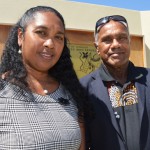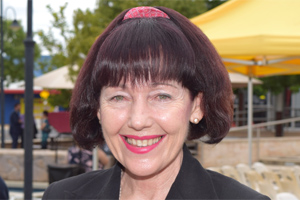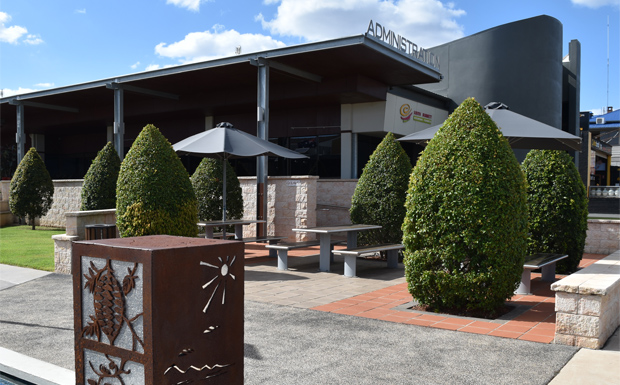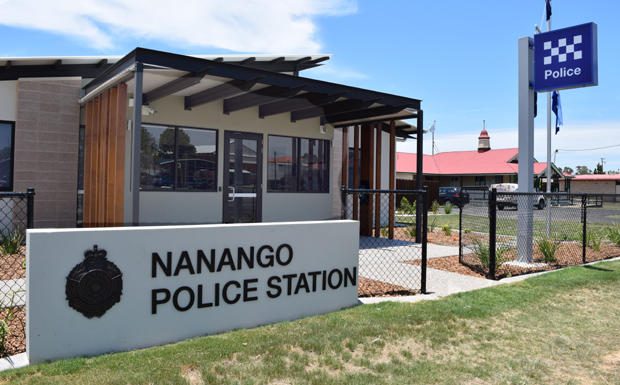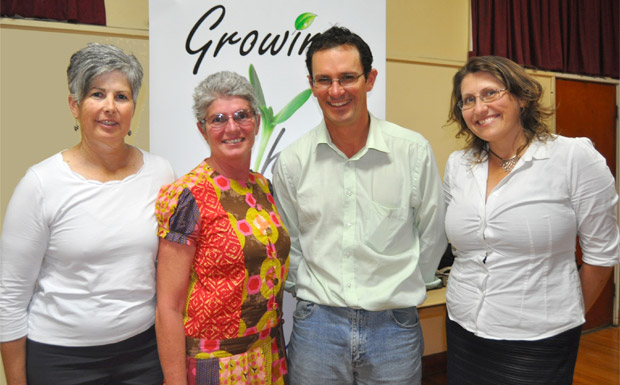
November 13, 2012
A crowd of 65 packed Kingaroy Town Hall’s Supper Room last Saturday night to hear about the potential for forming a new fresh food co-op in the South Burnett.
The free “Future Of Food In The Burnett” workshop was organised by Growing The Burnett Inc which has been promoting the concept of regional food self-sufficiency in the South Burnett, North Burnett and Wide Bay for almost two years.
Buses brought guests from Murgon and Blackbutt through torrential rain to attend the Kingaroy evening session. A similar seminar had been held at Gayndah earlier in the day.
Four guest speakers from the Sunshine Coast and Stanthorpe talked about different aspects of the fresh food industry and the potential of small acreage farming, as well as the most common barriers new entrants faced.
They also discussed the looming crisis in Australian food production as older broad-acre farmers retired, and how Australian consumers’ addiction to cheap supermarket food prices – which were often gained at the expense of farmers being able to make a decent living – was making the situation worse by making agriculture an unattractive career option for young people.
However, all four presenters believed that small-acreage farming and the re-formation of farmers’ co-ops offered a promising path in the future, and spoke about their vision.
Anne Michael and Deb Davis, directors of the Sunshine Coast-based food network consultancy Finding Common Ground, discussed recent research they had undertaken for the State Government.
They said the average age of traditional broadacre farmers is now 59 and rising, but their research found the average age of small acreage producers is 41 to 55. Most of these live on properties of between 11 and 20ha, and most have just one to five hectares under cultivation, which is usually sufficient to make them either a handy second income or a full-time one.
And while their research found that more than 60 per cent of small acreage farmers work more than 40 hours a week and some admit to being time-stressed, most have also been in business for between six and 10 years.
They said this proved that the concept of small-acreage farming was commercially viable.
The main hurdles small-acreage farmers faced were the high cost of land; a cost/price squeeze brought on by supermarket discounting; the near-total disappearance of food co-operatives in the past few decades; and being either overlooked or ignored by government which seemed more comfortable dealing with large-scale food producers than with small ones.
The couple was followed by Alexina Johnson, chairperson of Sunshine Coast food and beverage group Seasons In The Sun which was launched in October 2010 by the Sunshine Coast Council in collaboration with the Coast’s food and beverage industry.
Alexina said one of her organisation’s key tasks was to unify the region’s 500-plus food and beverage businesses under one brand in order to share the benefits of networking, group marketing initiatives and increased awareness of the Coast’s seasonal food offerings among consumers.
The group’s work involved educating consumers and food professionals about the diversity, quality and seasonal availability of the Sunshine Coast’s foods and beverages, as well as highlighting the economic value of the industry to the region.
She said creating a common brand and then “telling a compelling story” about it were the most effective ways to quickly differentiate local produce from major food brands and gain consumer attention and trust.
Ray Palmer, from Symara Organic Farm at The Summit, near Stanthorpe, was the final guest presenter. He shared his thoughts and experiences about running a small-acreage organic farm.
Ray said that although his farm is “about 300 acres”, he usually only has a couple of acres under production at any time. But the constantly changing selection of vegetables, herbs and fruit his farm produces is enough to support himself, his wife and their two children
He was always looking for ways to work more effectively, eg. keeping crop rows the same length so that materials can be re-used easily, and said many useful farming tools can be created for very little cost by DIY methods.
He was upbeat about the potential of small-acreage farming and added that the Internet was “a huge aid” to small farmers because it not only allowed them to obtain information about crops and farming methods, but also allowed them to bypass traditional food delivery systems and connect directly with end-consumers.
After a brief break for supper, the floor was thrown open for a question-and-answer session before Growing The Burnett president Brian Jarvis gave a short update about the organisation’s progress and plans.
Mr Jarvis said the group had identified that achieving continuity of supply was a key issue in the creation of a viable South Burnett food network, but added he was confident that this could be achieved and that when it was, they already had a commitment from one supermarket chain to buy members’ produce.
He also said discussions were well advanced on obtaining a site for a South Burnett food distribution centre, and that the group was looking for other locations for similar centres in other parts of the Wide Bay-Burnett.
The free event was sponsored by the Federal Government’s Department of Education, Employment and Workplace Relations. The South Burnett Regional Council provided an in-kind donation of the use of the Supper Room for the evening.
Growing The Burnett, which is a not-for-profit group, currently has 40 paid-up members and a mailing list of more than 300. It welcomes anyone with an interest in small-acreage farming, share-farming, organic farming or permaculture.
The group can be contacted by phoning 0417-756-528 or by email
[UPDATED: December 6, 2012 with correction]









